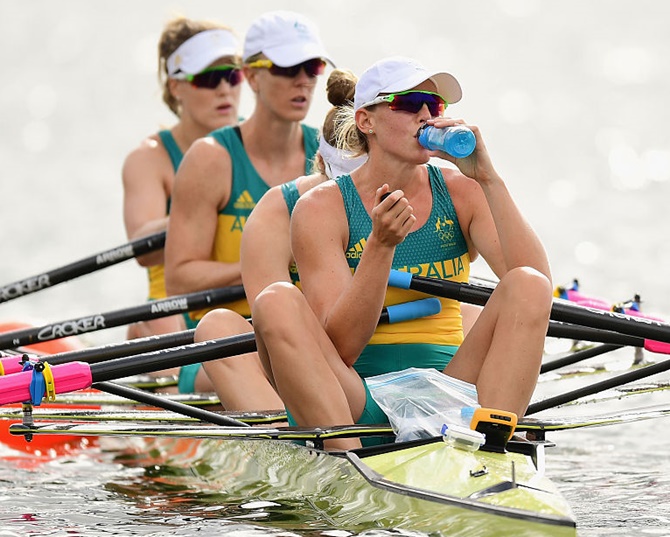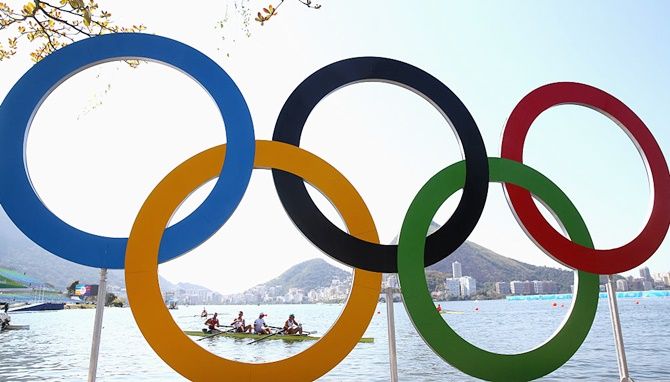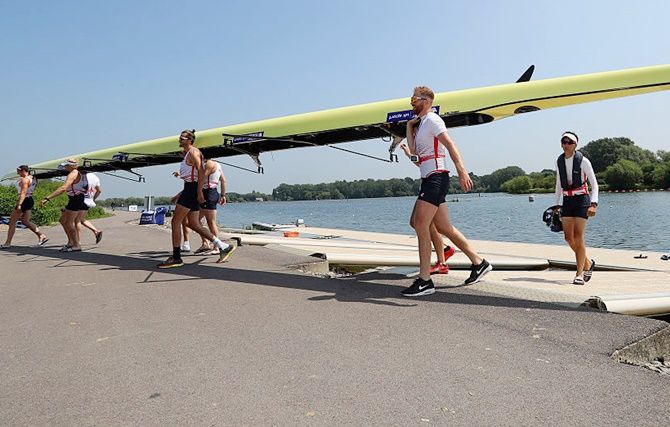As India’s Dattu Bhokanal will be competing in the men's singles sculls rowing event fat the Rio 2016 Olympics, on Saturday, here is a beginner's guide

Rowing is one the oldest Olympics sports, a test of teamwork and endurance often played out in spectacular venues. The 2016 Olympic Rowing Regatta, as it is officially called, gets underway in Rio de Janeiro.
The rowing events in Rio will be held in the Rodrigo Freitas Lagoon, just north of the famed Ipanema beach area. The lagoon is framed by steep granite mountains, lush forest and apartment blocks, and is overlooked by Corcovado, the Christ the Redeemer mountaintop statue. The water, however, is often polluted, although it has passed the necessary safety tests for the games.
There are 14 classes of rowing events, involving crews of an individual, a pair, a four or an eight. In skulling, each rower has two oars. In sweeps, each rower has one oar.
International races are contested over 2,000 metres on a six-lane course.

The first regatta was held in Venice in 1274 when gondoliers challenged other boatmen. The modern sport developed in Britain, where the first Oxford-Cambridge University boat race took place on the River Thames in 1829.
Rowing became an Olympic sport in 1896. But the first competition, in Athens, was cancelled because of rough seas in Piraeus Harbour. The sport is governed by the World Rowing Federation (FISA).
About 550 athletes from 69 nations will compete in 215 races. Libya will be represented by a sole skuller – Al Hussein Gambour. Russia has a reduced team of six rowers after most were banned in a doping scandal.
New Zealand top the points table in the World Rowing Cup series leading up to the 2016 season. Britain are in second place and the Netherlands third. New Zealand men's pair Eric Murray and Hamish Bond have been unbeaten since 2009.

Britain won most medals in this season's European Rowing championships with six. Helen Glover and Heather Stanning are unbeaten in this Olympic cycle.
Like all sports, rowing has its own language. Winning by a length means by the length of the boat. The stroke rate is the number of strokes – that is the cycle of the oar - per minute. The stroke is also the rower seated nearest the stern. Catching a crab is bad – it means the rower fails to get the oar out the water at the end of the stroke.
On the all-time Olympics table, East Germany are top with 33 golds out of 48 men's and woman's medals. They are followed by the United States with 32 golds and a medal total of 87, and Britain, with 28 golds out of 63.
The most-decorated Olympic champion is Elizabeta Lipa of Romania, with five golds, two silvers and a bronze between 1984 and 2004. The men's champion is Britain’s Steve Redgrave, with five gold medals and a bronze between 1984 and 2000.
The first recorded boat race in post-colonisation Brazil took place in 1851 in Rio's Botafogo Bay between longboats and whaleboats. The main rowing centres are Rio, Sao Paulo and Porto Alegre and the main clubs are linked to football teams. The famed Rio football club Flamengo started out as a rowing club.











